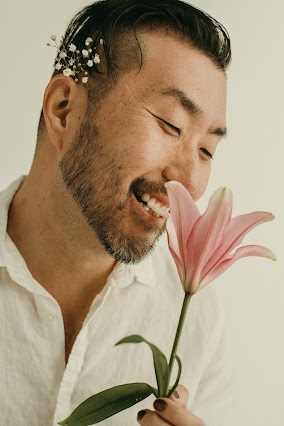Chapter 23: The Communities We're Born into and the Communities We Create Consciously
"I told a friend that I just don't feel like I fit in here. Like this world was not made for people like me. And my friend said, this world was not made for people like you. People like you were made for this world. You're here to change it." - as read by LauraFruitFairy (Her username, I assume she doesn't identify as Ms. FruitFairy)
My feeling of not fitting in was finally met with a hug rather than a slap. No longer did this feeling of isolation and not belonging have negative connotation or something that triggered any suicidal impulses. The reason I didn't feel like I fit in because I wasn't supposed to. The reason I didn't feel acceptance, comfort, or safety is because our capitalist, Eurocentric, Protestant, heteronormative society wasn't created nor designed to serve marginalized peoples (whether you want to call it a failure of design or failure of execution, the point remains). It was a badge of honor to be the oddball in this instance. It was a call to action and conveniently fed into my passion for social justice. But on the other end of the spectrum, hopefully this won't trigger my savior/martyr complex (Lest we forget, my martyr complex was sacrificed in my hero's journey, dying a martyr's death).
Self-actualized people possess Gemeinschaftsgefühl, or "social feeling". This word, coined by Alfred Adler, describes an interest and concern for the general well-being over other humans.
My constant desire for community has undergone several iterations. Naturally I began with the ones that I was born and socialized into. In my case it was a community of 1st, 1.5, and 2nd Generation Korean Americans, Protestant (but not specific to a certain denomination), middle and upper-middle class. There was certainly value in forming a sense of personal cultural pride and history as well as understanding the context of why my parents raised me, as best they could, the way they did. Using the Five Love Languages, why Acts of Service and Gifts were so much easier to express than Words of Affirmation and Physical Touch. It helped me understand why Quality Time was so scarce in a self-employed dual income household because it forces you to grow up as a "latchkey child" for significant parts. On the other hand, I failed to fit into the community I was born into because I was a "bad Korean" who wasn't so academically gifted nor did I desire to assimilate like a "model minority", because the LA Riots taught me that "becoming White" was a fallacy. No matter how many rungs on that social ladder I climbed, I would never be nor want to be "White".
In the next phase of my journey, I tried join communities looking beyond commonly shared demographic characters of race, class, gender, religion, and sexual identity. It's where I initially bonded and sought out friendships with those in the adult industry, which comprised a big segment of my social circle for a decade. It's where I participated in various online communities (forums, message boards, social media) for music and pro-wrestling, where I had the opportunity to post album reviews, socialize at live wrestling events, and even try my hand at wrestling articles. It was a welcoming space where I got to connect with those from different backgrounds (and most likely political affiliations, which wasn't as big a red MAGA flag as it became post-2016). But even these communities were passive in the sense that I was operating in pre-existing spaces and trying to fit in, despite my compulsion to give "hot takes".
My latest iteration is actively creating an community as well as expand my notion of what it means to belong to a community. For example, this week I had a strategic meeting for "Uncaged Hearts", an online and social community for the ENM (ethnical non-monogamous, LGBTQAI, Kinksters, and Curious Allies (people like me). While I had not previously imagined that I would co-host a podcast and help curate social gatherings, I was excited about creating a safe space for people where boundaries are honored and consent is respected, where its members practice conscious sexuality. It's the kind of nurturing environment and community that I missed out on growing up, a community that I had constantly searched for. So guess what? I get to help create it.
In setting the terms of engagement, Uncaged Hearts as a bit of a social experiment for me. Will I be able to recreate the values of authenticity, empathy, and intimacy I share with my close friends with a group of strangers? To what extent can I instill interest and concern for the well-being and growth among all community members? To what extent can I touch, move, and inspire others through the podcast?
If this world wasn't made for people like me, then to what extend can I remake a world that has compassion and actively advocates for the general well-being of all? It all starts within our communities, both the ones you're born into and the ones we create along the way.
Portrait Photography: https://www.zacharyleeportrait.com




Comments
Post a Comment